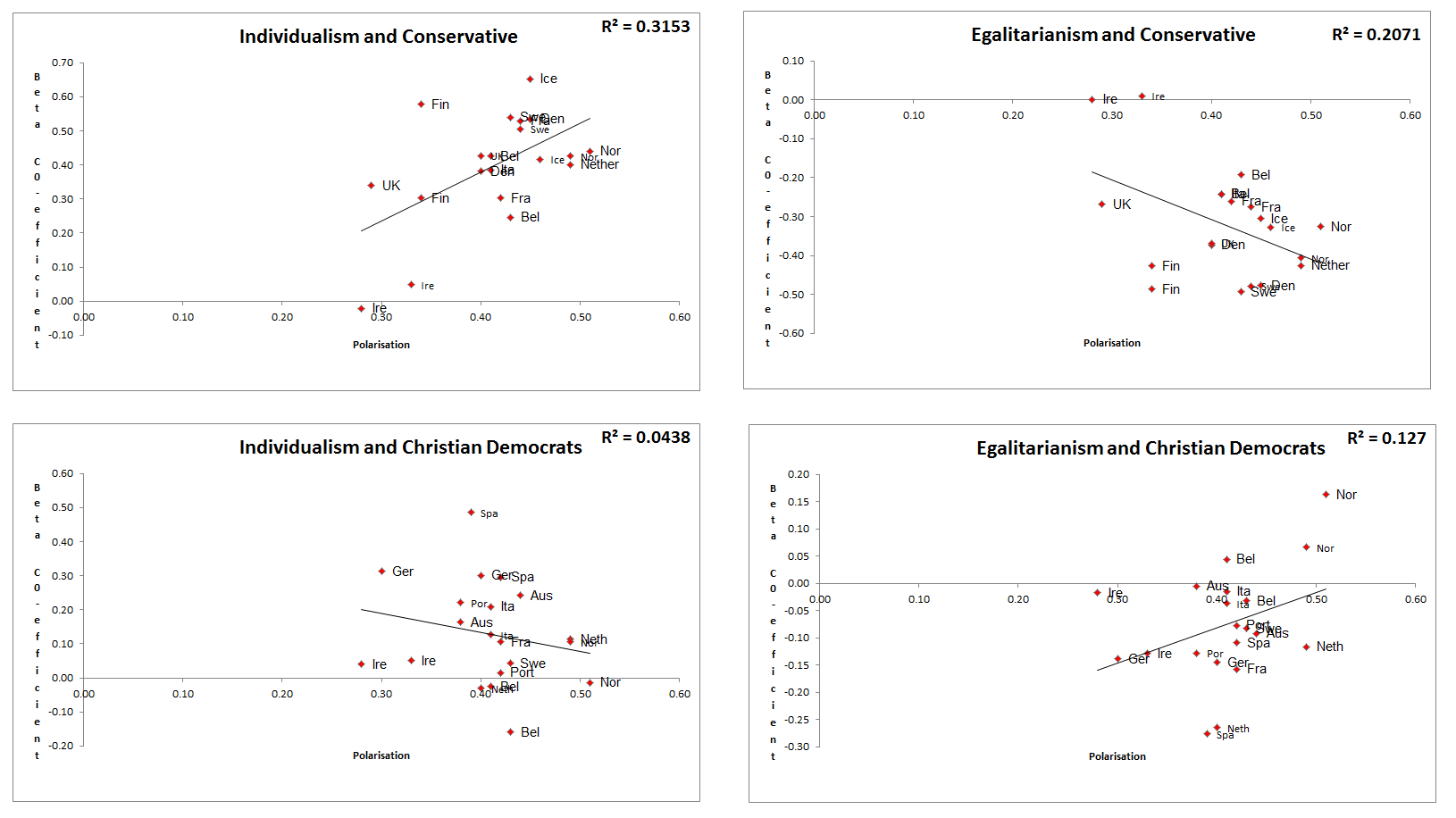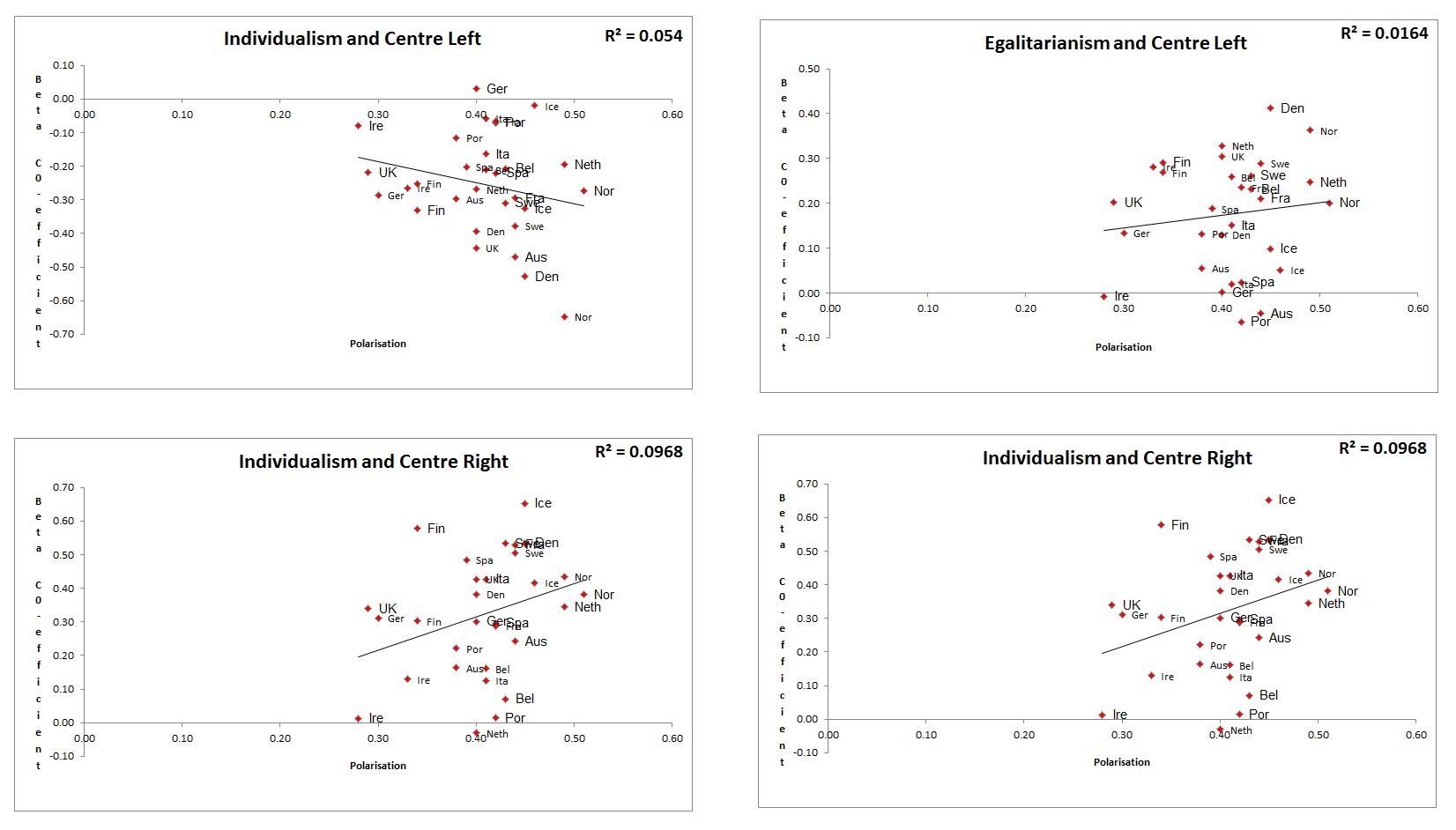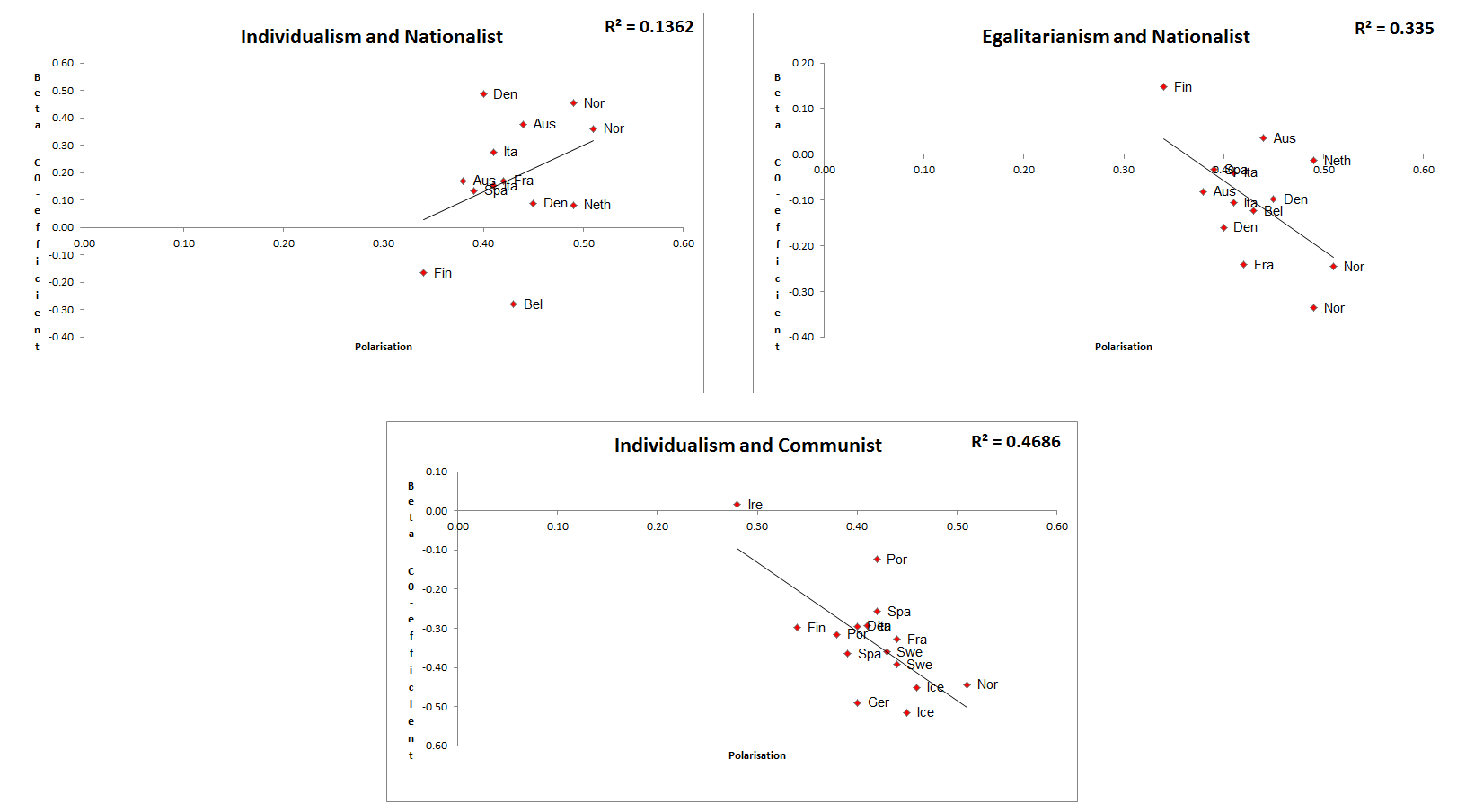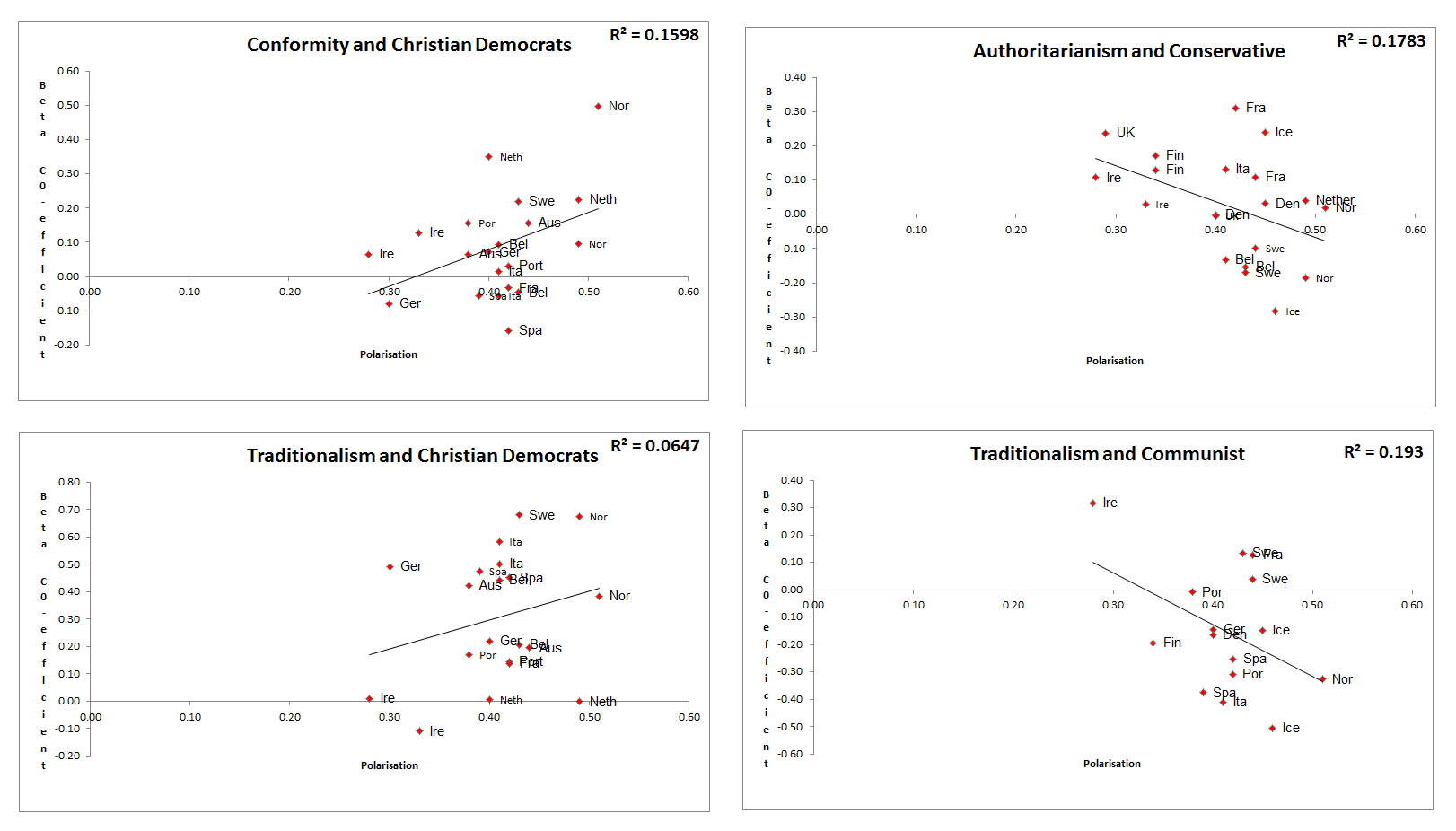Values have a larger influence on the party choices of voters in European countries that have polarised party systems
Do values influence the choices of voters when they make their decisions on who and what to vote for, and if so to what extent? Analysing data and political parties from 15 different European democracies, Thomas Loughran argues that voters in political systems with more polarised systems are more value driven than those in less polarised systems.

Polarising views? (Credit: David Shankbone, CC BY 2.0)
The political debate and discussion that frames modern electoral competition is often expressed through the language of values. When giving key speeches or interviews politicians frequently refer both to their own personal values and the values of the parties which they represent; even if they can appear deliberately vague in stating what these values actually are. Manifesto’s often try to position a party’s offer to the electorate in terms of values based appeals. It often appears to be the case that, at least superficially, electoral actors are competing to best match the values of their electorates. This is consistent with some of the more idealistic statements of early political theorists who argued that elections were primarily mechanisms to decide which values of the electorate would be represented in government; or as Easton, writing in 1953, said ‘politics is about the authoritative allocation of values’.
It is therefore somewhat surprising that the role of values in shaping the party choice preferences of voters has remained a relatively marginal area in electoral research. Values do not easily fit within existing explanations of vote choice and are generally assumed to be a function of social identities such as class. However, with the debate around the failure of established parties to enthuse the electorate and the rise of challenger parties of varying types across Europe, explanations of voting behaviour that re-emphasises the importance of voter’s values should become increasingly significant.
As electorates across Europe become more fragmented, more volatile and more likely to feel disconnected from established parties then it becomes important to understand how voter’s values are reflected in their choices. One key aspect of this is how party systems influence the relationship between values and voting given how vulnerable European party systems currently seem to be to change. The research summarised here argues that values have a larger influence on the party choices of voters in European countries that have more polarised party systems.
Measuring the influence of values
One of the main reasons that values have not taken the central role in electoral research that they might have done is because of measurement challenges. It is hard to measure values directly through existing methods and there is much debate regarding how values can be captured as distinct from attitudes and ideologies. This is particularly the case when focusing on political values. There are difficulties of equivalence when measuring values in different political contexts which has made it difficult to advance cross-national research in this area. In order to address these challenges this analysis applied a latent modelling approach (SEM) to measure the underlying values structures of Western European Democracies using the European Values Survey (EVS).
This identified 5 political values that could be compared across 15 Countries; Individualism, Egalitarianism, Traditionalism, Conformity and Authoritarianism. It is not claimed that this is a comprehensive list of political values in the European electorate; simply that given the limits of the data it was possible to develop stable comparative measures for these 5 values. The analysis then measured the strength of the relationship between these values and party choice using 2008 and 1990 EVS data in each of the 15 countries separately. Party choice was defined as 6 different European party family types (Centre Left, Centre Right, Centre, Nationalist, Communist/Left, Green) with an additional 2 being gained by splitting the Centre Right into its separate Conservative and Christian Democrat components. These measures were then plotted against party system polarisation scores for each country.
Core Findings
The findings are equivocal but they demonstrate evidence for the theory that values become more important to vote choice decisions in more polarised political systems. In general the analysis shows that as polarisation increased the size of the values effect also increased. However, this varied by values dimensions and party type. There are 5 core findings;
1) Polarisation has a small, but relevant, effect on values and voting for mainstream parties.
As can be seen in Figure 1 for Egalitarianism and Individualism, which might be considered core political values, the influence of polarisation on mainstream party vote is small. However, the direction of the effect is as expected in all 4 graphs. Polarisation increases the positive strength of Individualism on the Centre Right vote and increases its negative impact on the Centre Left vote. The reverse is in evidence for Egalitarianism as polarisation increases its negative association with the Centre Right vote.
2) Polarisation considerably strengthens the influence of values on Conservative party family voting.
When the Centre Right vote is split into its Conservative and Christian Democrat party families it is clear that the stronger effect of Polarisation on the Centre Right vote is driven entirely by the relationship between values and the Conservative vote. Figure 2 shows that polarisation has a stronger influence on these core values and voting for Conservative parties. The effect of polarisation on these values and voting for Christian Democrat parties if anything appears to run in the opposite direction with polarisation dampening (and even reversing the direction) the values effect.

Figure 2 – Polarisation effect on values and voting for Christian Democrats and Conservative Party Families
3) Polarisation has a larger effect on the values-voting relationship for non-mainstream parties such as the Nationalist and Communist party families. (Shown in Figure 3.)
4) For the 3 values that are ‘non-core’ the influence of polarisation varies considerably.
There is not sufficient space to discuss this here but Figure 4 hints at the extent to which the influence of polarisation varies according to party type and value dimension for these measures.
5) The number of parties has no effect on the strength of the relationship between values and voting.
Implications
The analysis presented here suggests that it is the content of political competition that influences how important values are to voter’s choices rather than the structure of those choices. In an era of voter disillusionment with mainstream parties and of increasing fragmentation of the party systems this is a potentially important part of explaining why challenger parties are likely to succeed in some areas and not in others. It potentially explains some of the limits to catch-all parties; where these parties may have to adjust their strategies in a more polarised and fragmented political era to ensure that they appeal to the values of their core supporters to avoid being susceptible to challengers. Beyond that values can provide these key insights into voter-party dynamics.
—
Note: this post represents the views of the author and not those of Democratic Audit or the LSE. Please read our comments policy before posting.
—
Thomas Loughran is a PhD Student at the Institute for Social Change, University of Manchester








 Democratic Audit's core funding is provided by the Joseph Rowntree Charitable Trust. Additional funding is provided by the London School of Economics.
Democratic Audit's core funding is provided by the Joseph Rowntree Charitable Trust. Additional funding is provided by the London School of Economics.
Or better said: voters have no free will.
https://t.co/9cDvgknVec https://t.co/9cDvgknVec
“Voters in more polarised political systems are more value driven than those in less polarised systems.” https://t.co/D6g4wAF51T
Values have a larger influence on the party choices of voters in European countries that have polarised party systems https://t.co/qQ6SHy2DI4
Values have larger influence on choices of voters in European countries w/ polarised systems https://t.co/v8u33g0hmf https://t.co/Xd3sov5lu1
Values have a larger influence on the party choices of voters in European countries that have polarised… https://t.co/YFNKqTZNIf